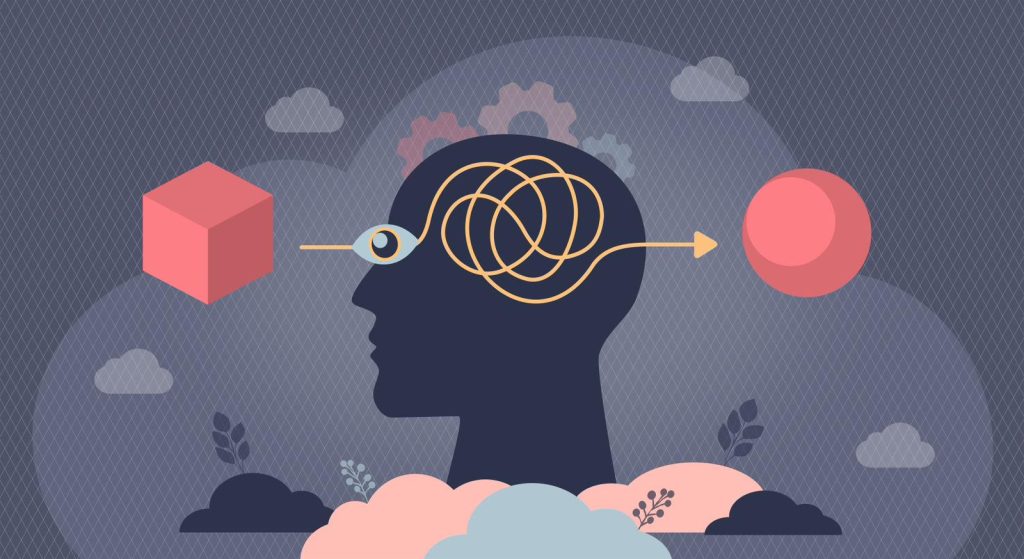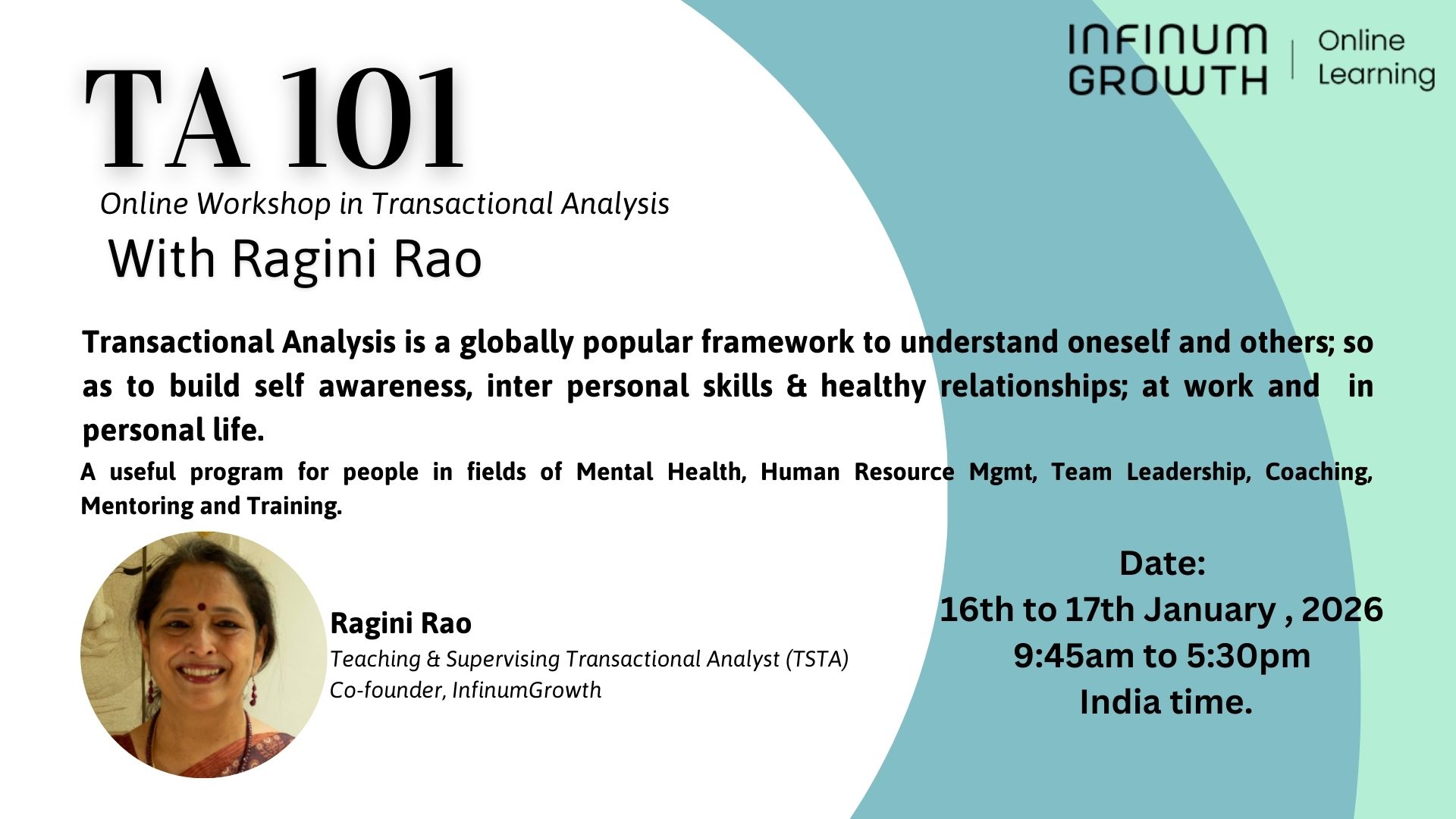“My colleague has a clever habit of selective listening and looks for selective information to prove his argument”, recalled Udarsh.
“I was naive at first and got impressed with the way he presented his views with total authority. Then I got wiser to his game and found the loopholes. I would contradict him with equally convincing logical arguments, armed with selective information, to align with my view. It was obviously not taken well.”
“Too bad for him, but it had taught me the critical lesson of not getting trapped in, what I later learnt, was called Confirmation Bias.”
What does Confirmation Bias mean?
Seeking out and favouring information, that validates and confirms our beliefs, or a stand that we take; and choosing to disregard or dismiss evidence that contradicts them, is Confirmation Bias.
In other words, very selectively sticking to and remembering, only that which confirms our belief; and being biased about this. It could even mean interpreting ambiguous or inconclusive statistics and conveniently twisting it, to confirm our views.
Biased, because we are not open to looking at the complete picture. It is a little bit like the story of the seven blind men, touching only parts of the elephant; and each of them insisting that only his own perceived description is correct. Except that, in the case of confirmation bias, people with normal vision choose to be blind or blinded.
Some examples of confirmation bias
Relationships – There could be a belief that your friend is ignoring you. Associated is a feeling of pain that you experience. It grows. You try calling and the friend says that he/she will call back shortly. The call comes after a couple of days.
By then you have decided that the person has dumped you and you answer coldly. The relationship becomes icy. Till you are told that the friend had faced a family emergency and was tied up in it.
This is an example of filtering what happened through a foregone belief and looking for confirmation of it in the events.
Health – It could also pertain to views on health. Even though some diets have ‘iffy’ consequences on overall health; or like wise with medical systems – such as Allopathy/Ayurveda/Homeopathy; we choose to remember only the success stories and persist with the diet or the medical system.
Political views of individuals, Media comments on issues, Obsession with Superstitions …. The list of examples goes on.
How the bias impacts us
Making us very set, selective and limited in our views, confirmation bias impacts us in different ways –
- During times when we need to take critical decisions, a closed mindset obviously does not give us the benefit of choosing from all the possible options open to us; and then taking a well reasoned and researched call. We might overlook important evidence that proves to the contrary of what we believe in.
- It strongly affects workplace decisions, leading to a negative impact on business results.
- The bias hampers healthy dialogue. It becomes difficult to engage with a closed person, unwilling to consider any opposing view. There is no peaceful conversation or active listening – just an attempt to prove the other one wrong.
- At workplaces, it could lead to resignations and churn of team members. In personal life, this could lead to break ups in relationships.
- Extreme views lead to divisiveness and polarisation in society.
- It limits our potential to grow and mentally narrows us. Sometimes we personalise issues and perceive it as an attack on ourselves, if someone disagrees with us. There is the danger of losing a balanced outlook on life.
Some possible reasons why we stick to this bias
- It could be the fear or the embarrassment of being proved wrong.
- Not being okay with the vulnerability of being questioned. Putting on blinkers to external judgements gives a kind of emotional blanket that we are right.
- Sometimes like a herd instinct we align ourselves to those who believe and behave like we do. There is a feeling of safety, belonging and acceptance.
- Contradictory views appear threatening and unsettling – be they from others or even holding them within ourselves.
- This mindset could start from childhood where beliefs are deeply ingrained and we don’t know anything different.
- We could have some experiences where certain beliefs are proven right and we think that it is the only truth. There could be times when superstition is kept alive when we filter selectively what we recall of instances of what happened. We ignore the times the events did not match the superstition and do the reverse when it does.
- Sometimes the effort of evaluating and perhaps changing our set beliefs seems like too much mind effort.
- It could also be extreme rigidity and not being inclusive of other perspectives.
- It could be equating one’s identity with always being right without room for error. If what I believe is shaky then I am shaky. This limits the scope to learn more and to grow.
- We all know that social media is clever and feeds what we search for. It reinforces our beliefs, making us even more invested in them by showing posts that are aligned to our point of view, algorithms that have content similar to what we have earlier searched for, echoing our perspective.
Possible ways to get out of this bias
- Understand that one’s identity is not linked to rigidly holding on to just one view on a matter. Doing that only boxes us into closed chambers.
- The world is dynamic, new information and new research helps us to expand, stay relevant and grow.
- Build awareness that we are only looking for information, evidence and people who confirm what we say or believe. Sometimes a good friend may show us the mirror and we learn not to be dismissive of them or shun them.
- Break out of one’s comfort zone and actively engage with those who have opposing views with evidence. This is not with the purpose of converting them to one’s line of thinking but out of the need to know more and understand the subject more in depth.
- Participate in healthy debates where we put aside our fragile egos and learn from each other. Through this we come across as individuals with whom people would like to spend time. Being dogmatic shuts out conversations. People become apprehensive of engaging with us.
- Be truly curious about what is happening around. Ask questions. Read more from and listen to, various sources with an open mind. This helps in exposure to different views – across the scale, from left to right.
- Accept that people have a right to their perspective with their evidence, as we have to ours. This helps in fostering mutual respect.
- Instead of using iron clad words and phrases that have no room for movement or change, like ‘always’, ‘absolutely’, ‘written in stone’, ‘never, ‘completely’, we could incorporate into our vocabulary words like ‘maybe’, ‘for now’, ‘till proven otherwise’, ‘yet’, ‘it seems’, ‘there’s a chance’, ‘it’s possible’, ‘to some extent’… It keeps the dialogue moving and the mind more flexible. Step lightly without getting into the possible quicksand of our own thoughts.
- It could be a good idea to introspect and think of the times we have questioned our beliefs or changed our mind about an issue that we were very fixated on with our belief about it. What comes up for you?
- Journalling helps. Jotting down strong beliefs, exploring the reason why we hold them, and checking if they are based on evidence. Also look for evidence that questions these beliefs.
- Quite often when we are willing to question our own beliefs and find that there is room and scope for alterations, it is an indication that we are progressing and growing.
Here is a story
Lalita, a girl in her 30s, was insecure about her own capabilities. Each successful project delivered at work confirmed her belief that it was only because of the support and guidance of her senior partner. She would be unable to match up on her own. Unconsciously her dependence was such that she undervalued her own input and skill.
“I am so lucky to have Saisha with me. Her presence has assured the quality and completion of my projects on time. I could never have done it on my own,” she told her colleagues. This happened on many occasions. A delayed delivery or ‘not up to expectations’ project she would put down to some technical problem. She was unwilling to question her blind faith and belief.
One of her colleagues quietly told her, “Try doing it all on your own. Or at least keep a record of all the things that you do independently to add value to the product.” But Lalita was not convinced. Every successful venture was a proof of Saisha’s input without which Lalita would be lost.
One week Saisha was on leave and a presentation needed to be submitted. With some trepidation Lalita did the work. “Well done,” said her boss; but Lalita believed that it would have been better had Saisha been present.
“Perhaps you just need to collect proof to see your own effort,” her friend told her.
This time Lalita took notice and made a chart of all the times that she had suggested changes to presentations, her innovations and input that had won them accolades. And the times things hadn’t worked out that well, even with Saisha around.
The picture looked a little different now.
She acknowledged her own role and strength. Her belief in Saisha had been a support for her but what was more powerful was her belief in herself.
She had challenged her confirmation bias!
Like this article?
Check out Sumita Banerjea’s book Script Your Life Your Way, with a large collection of articles written for InfinumGrowth, along with self work exercises. The book is available on Amazon.

Want to work on your own confirmation bias? Click here to see how InfinumGrowth can help.
Please do leave your comments at the bottom and do share with others if you like this article.
















Very well articulated. We get into confirmation bias to reduce cognitive dissonance. Working on developing Emotional Intelligence will help us to effectively handle information that is not aligned to our existing thought process
Thank you Meenu. Your comments add so much value to the article. It helps me get another perspective.
Human nature has been very well analyzed. The article is very helpful to come out of a conflict situation.
Kaushika thank you for the take away from the article – of it helping to deal with a conflict situation.
Kaushika many thanks for the take away from the article – of it helping to deal with a conflict situation.
Very important article specially on present time ‘s context. Wonderfully explained. Enjoy reading every line of it.
Neelanjana am happy you enjoyed the article. The bit about it being relevant in the present context in particular is interesting. Thanks for your input
Neelanjana the focus on the article being particularly relevant in the present context is interesting. Am glad you enjoyed it. Thanks for your feedback
Thank you. Helped to understand my own viewing of any particular situation.
Am happy Smita if the article helps us introspect. Thank you for reading my pieces and encouraging me with your feedback